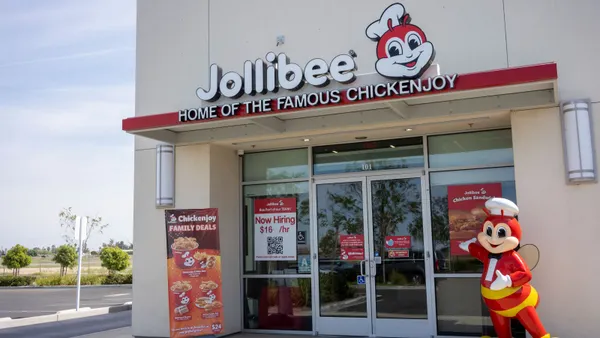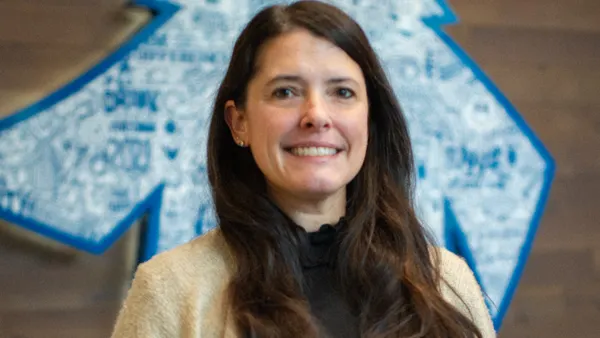Dive Brief:
- Some quick-service employees from Checkers, Church's Chicken and Pizza Hut can now get same-day and next-day paychecks, according to Bloomberg.
- In June, Church’s Chicken will start a test that offers its employees half of their earned pay the day after their shift, no fees attached. The pilot will gauge whether or not 50% is enough to retain its employees in the tough employment market.
- Some chains, including Bloomin’ Brands and Checkers & Rally’s Restaurants, have recruited Instant Financial, a venture capital-funded platform that provides employees with pay after each shift with no extra cost to them. Pizza Hut franchisee Erik Bittner has also added a similar perk through Branch, which charges a $2.99 fee for workers to get up to half of their wages the same day they worked.
Dive Insight:
As Church’s CEO Joseph Christina told Bloomberg, some people just can’t wait two weeks to get paid and, indeed, the majority of working adults live paycheck to paycheck, according to the University of Chicago’s research organization NORC. The study found that 51% of Americans wouldn’t be able to cover necessities without the help of their savings account, should they miss one paycheck.
Typically, some minimum wage earners in a pinch have had to rely on cash advance establishments to cover for emergencies, but those establishments can charge pretty hefty service fees. Credit.com reports that some payday loans include interest rates as much as 400%, which perpetuates users' challenges.
Restaurant brands implementing quicker cash can circumvent such fees for some workers, which is as big a perk as any being offered right now in the space. And, by covering the cost of Instant Financial, for example, which was founded in 2015 in the middle of a tumultuous fight over the federal minimum wage, brands could also cultivate goodwill for employees.
But expediting pay isn't the only perk out there right now as restaurant chains navigate the tightest labor market in 49 years. Restaurants are pulling out all the stops — facilitating hiring parties, cultivating mentorship programs, extending benefits and more — all to win in the fight to retain and draw in quality employees. There's good reason for this. According to the Center for Hospitality Research at Cornell University, turnover costs the average full-service restaurant operator about $146,600 annually.
But the benefit here isn’t just to cover wage stagnation and those who rely on paycheck-to-paycheck living. It’s also to satiate a growing demand for instant gratification from a younger, digitally native workforce who knows no different. "The expectation in the future from employees is going to be they want their pay now. Why do I have to wait two weeks?" Bittner told Bloomberg.










